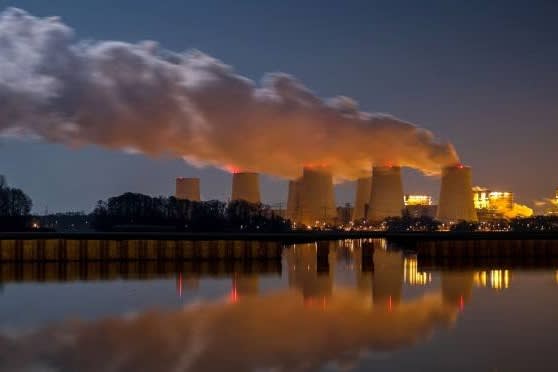UK’s 2035 zero carbon electricity goal ‘extremely challenging’
Boris Johnson’s pledge to make Britain’s electricity system “net zero carbon” by 2035 would be “extremely challenging” to achieve in just 14 years and would likely require a continued role for natural gas, according to energy analysts.
The warning came as environmental groups welcomed the prime minister’s commitment, which was announced in a speech by business secretary Kwasi Kwarteng at the Conservative party conference in Manchester on Monday.
Energy specialists, however, said reducing Britain’s reliance on natural gas in the power sector would be difficult and expensive. The country’s dependence on the fossil fuel, which is the UK’s single biggest source of electricity generation accounting for almost 40 per cent of output, has been thrown into stark relief in recent months as wholesale prices for gas hit record highs.
Kwarteng said the crisis had demonstrated the need to “step up efforts” to end the country’s vulnerability to international gas prices. “The only way to strengthen Britain’s energy security is zero-carbon power that is generated in this country,” he said.
But he admitted that hitting the 2035 target, which mirrors a similar pledge made by US president Joe Biden, would still involve some gas-fired power stations, although they would be fitted with carbon capture and storage (CCS) technology to lower their emissions.
The 2035 target is a landmark in achieving the UK government’s target for reaching net zero emissions for the entire economy by 2050.
Richard Howard, research director at Aurora Energy Research, an Oxford-based consultancy, said the difficultly in achieving a zero carbon power system lay in “what you do when the wind stops blowing and the sun is not shining,” referring to renewable energy being weather-reliant.
Ministers hope that CCS technology — which captures CO2 from fossil fuel plants and stores it permanently below ground — will be in widespread use by 2035 to help meet demand when renewables are not generating.
“Technological change will come, just remember the iPhone wasn’t around 14 years ago,” said one Conservative aide. Some power companies also plan to build plants that can run on low carbon hydrogen.
But Howard warned CCS and other low-carbon technologies that could displace gas, such as nuclear, involved a long “lead time”. Despite examining CCS for nearly two decades, the UK has yet to deploy it at scale.
All of Britain’s operational nuclear plants are due to be retired by 2035, with only one replacement plant, the 3.2GW Hinkley Point C in Somerset, under construction.
“Even if the government pressed the button on the next wave of nuclear projects, I’m not sure how many of those we could realistically have operational on the grid by 2035,” added Howard.
Other energy sector specialists expressed dismay that Kwarteng had not mentioned the urgent need to reduce electricity demand via measures such as better insulation.
“The UK needs to make a significant commitment to insulate homes and reduce overall usage, with sufficient funds attached, in order to avoid an even bigger public spend on electricity generation and distribution infrastructure,” said Dr Marie Claire Brisbois, lecturer in energy at the University of Sussex Business School.
Twice weekly newsletter

Energy is the world’s indispensable business and Energy Source is its newsletter. Every Tuesday and Thursday, direct to your inbox, Energy Source brings you essential news, forward-thinking analysis and insider intelligence. Sign up here.
The 2035 target will also require a significant further build-out of offshore wind. Johnson last year set a target to quadruple Britain’s current offshore wind capacity to 40GW by the end of this decade but said at the weekend this may need to go further, to 60GW.
Dan McGrail, chief executive of RenewableUK, the trade body, welcomed the 2035 target but warned the government would have to press ahead with both further onshore and offshore wind projects “without delay”. Wind developers often complain they are slowed down by planning processes and insufficient investments in grid infrastructure.
Figures from the UK business department show only a modest 1.4 per cent increase in renewable generation capacity between 2020 and 2021.
Johnson faces concerns from a small group of backbench Tory MPs that the net zero target will lead to an increase in household costs.
Climate Capital

Where climate change meets business, markets and politics. Explore the FT’s coverage here.
Are you curious about the FT’s environmental sustainability commitments? Find out more about our science-based targets here

